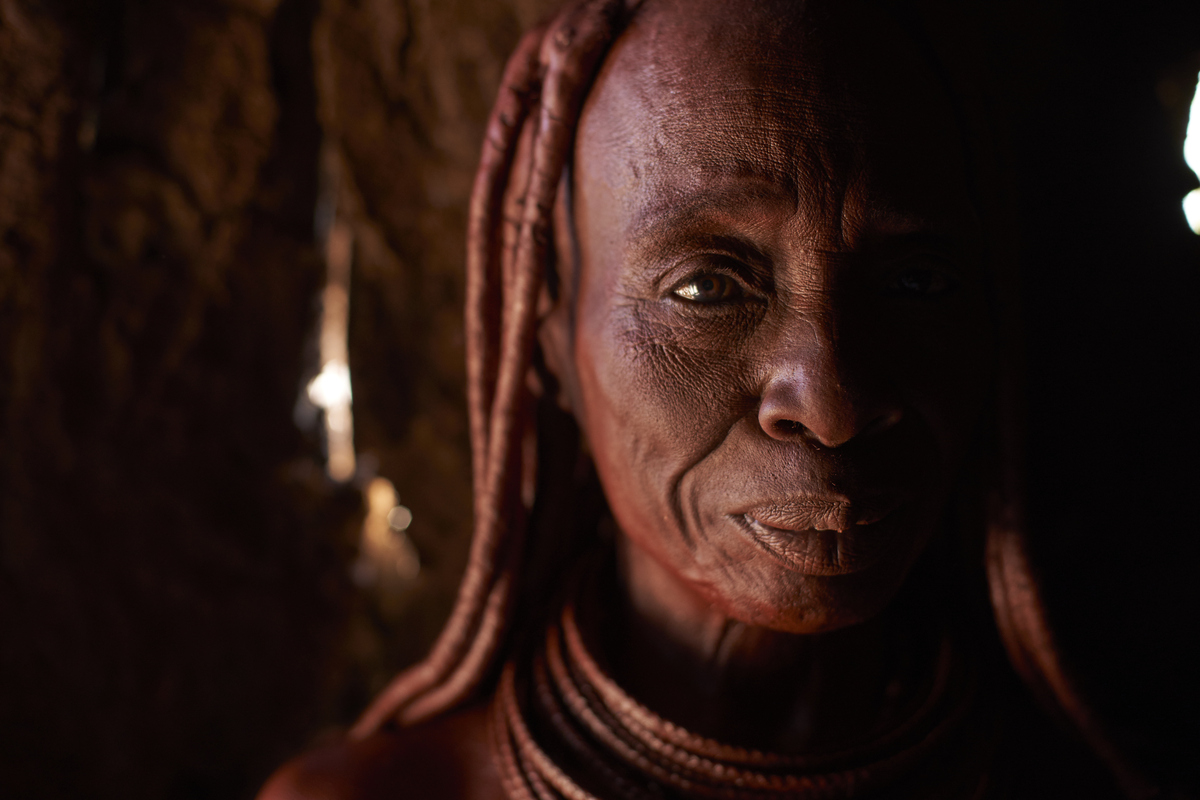The Ovahimba tribe is one of the most prominent and fascinating tribes of Namibia. They are known for their unique cultural identity and age-old traditions of living in a low-water ecosystem.
Advertisement
Himbas are the last nomadic people in Namibia with an estimated population of 50 000 and retained their way of life for thousands of years. They move to places in search of food, water, shelter, and food for their livestock.
The Himba tribe is known for not bathing in water for their entire lives. The Himba people use otjize (a mixture of butter or cream milk with ochre – ochre is a rock found on mountains which is beaten till it becomes like powder) to bathe. They apply this red mixture to their bodies as a way of bathing which gives them flawless red skin.
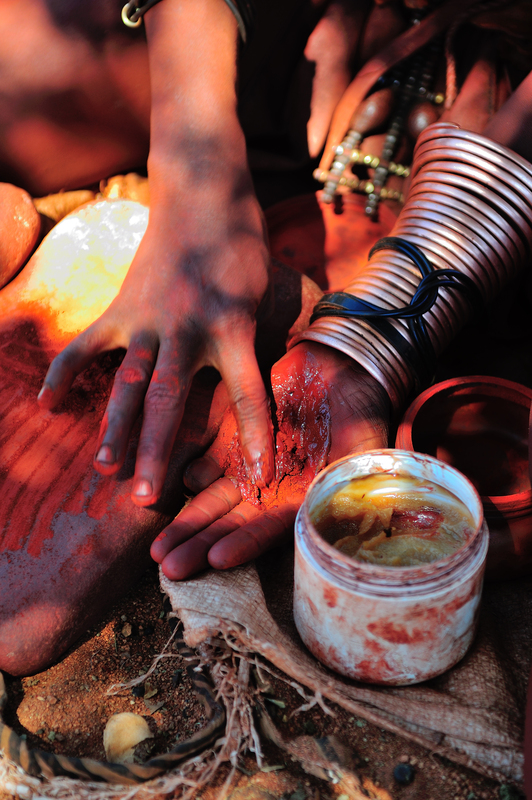
They also smoke themselves clean using special branches that give their skin an almost woody smell. The smoke is put under their arms, privates, heads, and on clothes, it’s used as perfume. This is done after they have applied the otjize. This whole process takes up to three hours.
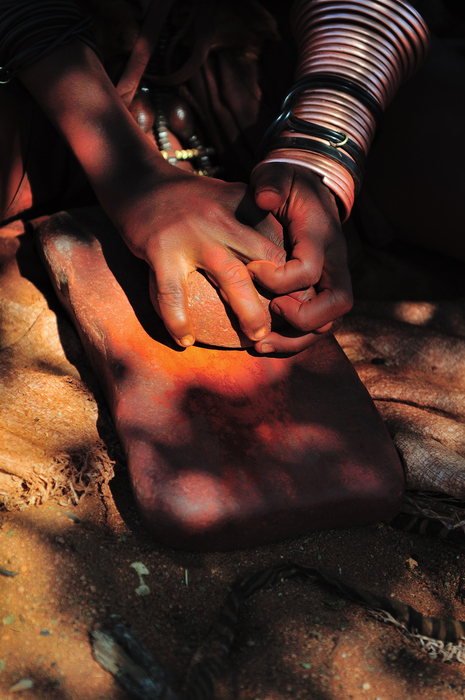
Nudity is the way of life for the Ovahimbas, clothes are not fully worn – they only cover their bottom halves with animal skin. Once a female comes of age she will wear an Erembe on the head to show she is a woman now.
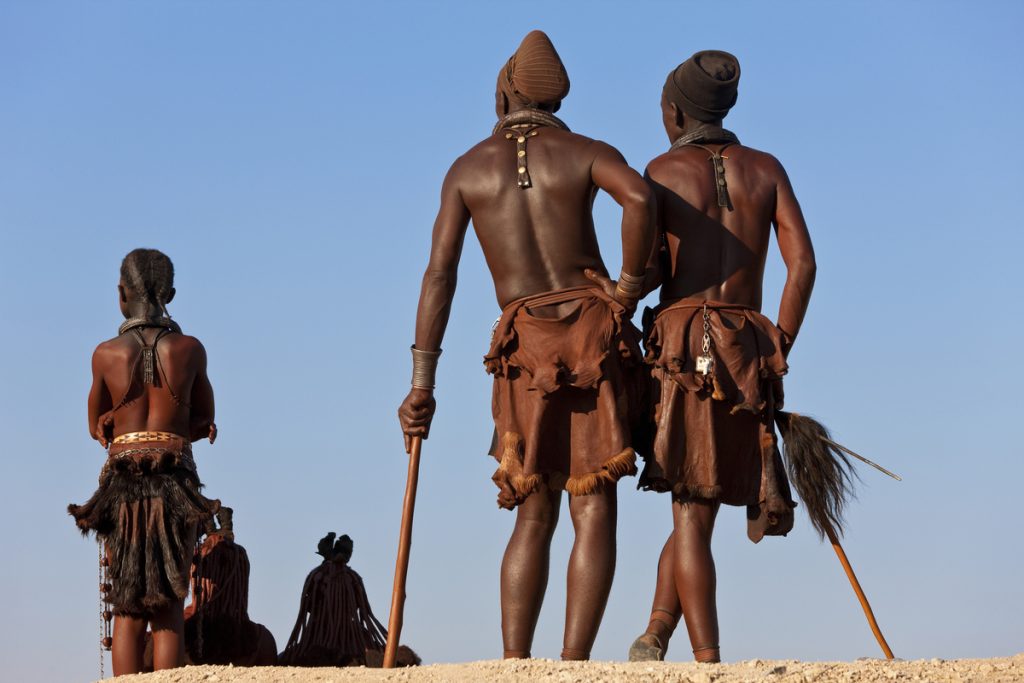
Goats are slaughtered when a female gets her first period or when there is a wedding. When slaughtering a goat, the Himba people suffocate it, as they believe it retains a lot of blood in the body of the goat which they enjoy.
Advertisement
Upon removing the intestines of the goat, one of the elder men will read it. The Himbas believe they receive messages through reading the intestines. It always predicts something that will occur in the future. They also believe if they get a negative message they are able to change it. This practice is mainly done to urge young women to get married.
The stable food for the Himba people are mopane worms which dry in the sun, maize cooked super thick, and meat. They cook their meat with water and salt only. They eat all their food with bare hands.
The Ovahimba people use cattle as the true measure of wealth instead of money. More cattle means you are wealthy and can also have more wives.
Their homes are made of cow dung mixed with water and mopane wood. They sleep on animal skin as mattresses. They also make a fire in the center of the huts.
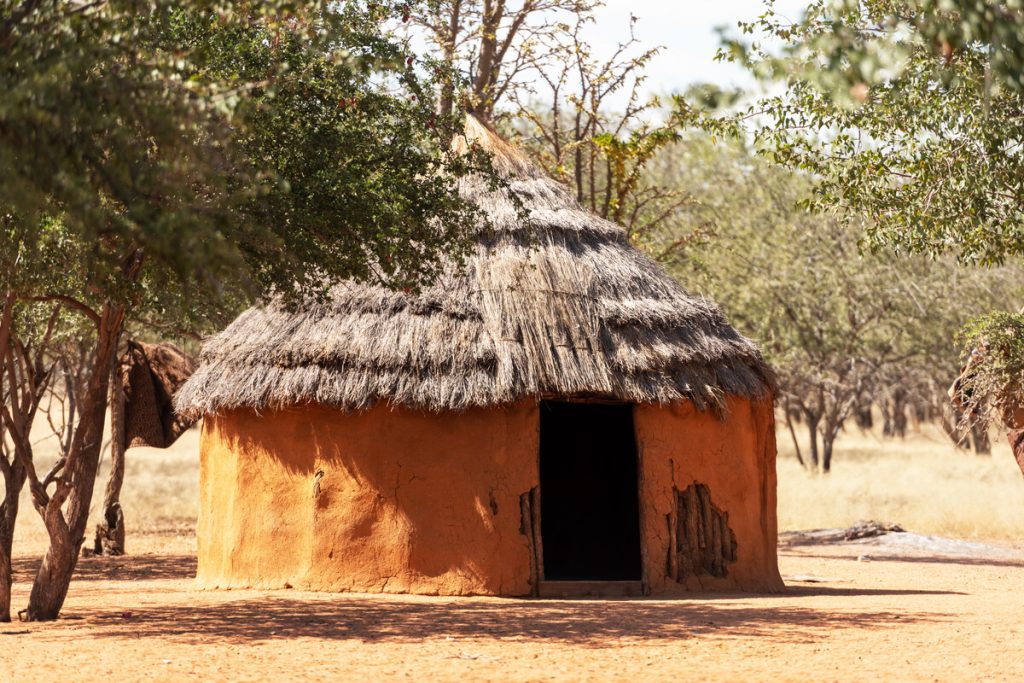
Himba people are predominantly livestock farmers who breed fat-tailed sheep and goats. Women turn to perform more labor-intensive work than men. They collect and carry the water, collect firewood, and take care of the cooking, and the children.
Men are tasked with livestock farming, animal slaughtering, and making important decisions.
The Himba men can have a minimum of two wives but women can only have one husband. The Himba people practice arranged marriages, girls can get married before even turning one. Child marriage is illegal in Namibia but still widely practiced by the Himba people.
A Himba man can give his wife to offer sex to a male visitor as a way to welcome the guest, this is a common practice amongst the Himbas.
The Himba people dance and sing for fun.
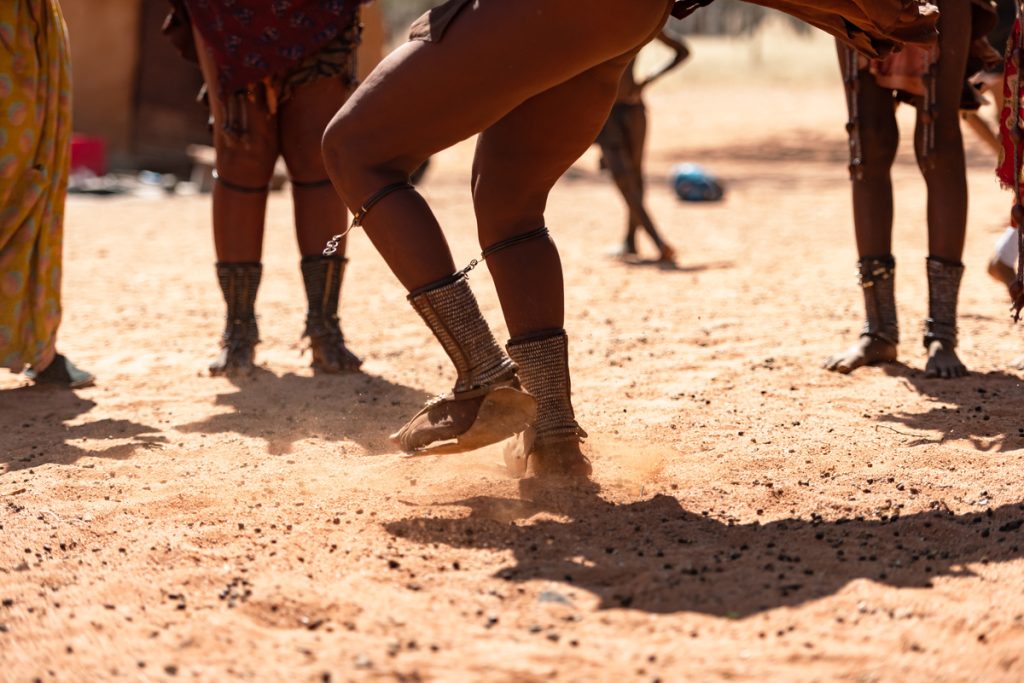
Himbas have their own religion. They have a holy fireplace which is a place they make connections with the spirits of their ancestors. They believe in their forefathers.
This is one of the few tribes left that don’t have access to the internet or cell phones. They don’t believe in having them and transportation is on foot.

